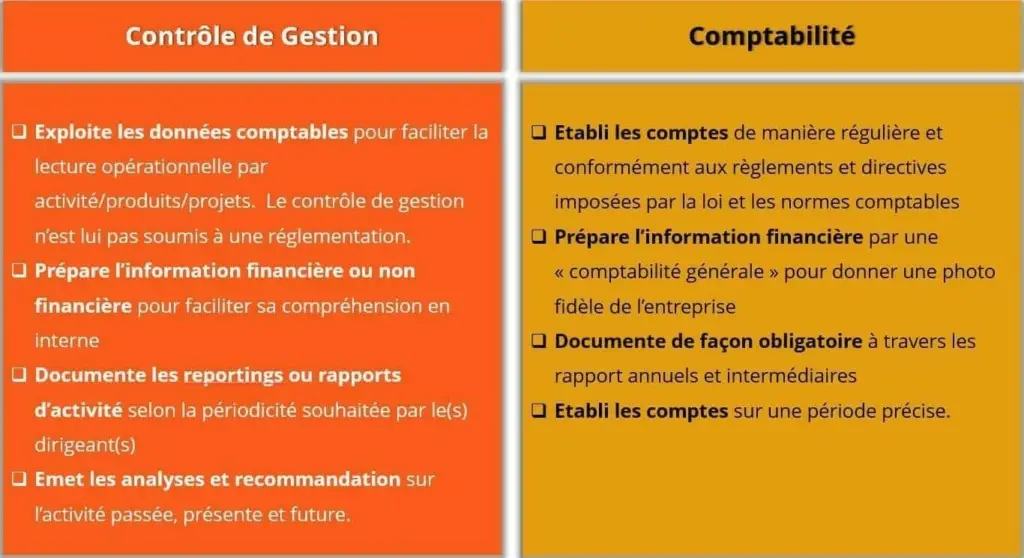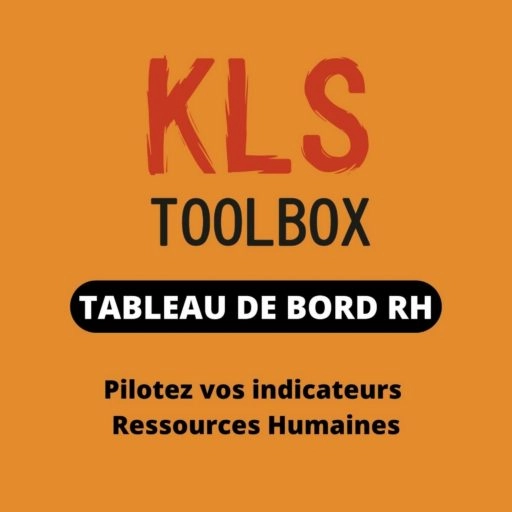Introduction
80% of controllers have already experienced the lonely moment of explaining their job for hours. And the next day when the question "Do you understand my job?" is asked again, the answer is "Yes, you are a manager, you do accounting".
At first sight, the border between the two disciplines may seem very thin. However, they are two professions with different skills and missions.
So how do you find your way through this mess? We asked our experts to clarify the situation: " Rivalry or Complementarity? ".

Context
In order to contextualise the subject, it seemed important to us to reposition these professions within an organisation.
Management control is generally attached to the finance department in the same way as accounting, tax, treasury, consolidation or purchasing in some organisations.
The role of a finance department is to define the company's financial strategy with the General Management. It is then responsible for ensuring that the strategy is implemented by the departments and players concerned.
The main tasks of a financial department include
- Guarantee the reliability of general and cost accounting in compliance with SOX, IFRS, USGAAP and other accounting standards
- Managing financial flows
- Drawing up the budget, business plan and forecasts
- Produce mandatory and internal company financial statements
- Managing the tax aspects
- Ensure relations and negotiations with strategic partners: banks, administrations, shareholders, investors, etc.
- Implementing decision support tools with performance indicators and Scorecards in line with the objectives of the structure
- Steering the implementation of digital tools to facilitate the management of the company: ERP(1) , EDM (2)
- ......
(1) ERP : Enterprise Resource Planning for all financial and non-financial flows
(2) EDM Electronic Document Management or document management software
Accounting
The accountant has kept this image of a binary character (Debit or credit)They are cold and often bring bad news. They are beings with a " mysterious language "as AUGUSTE DETOEUF said.
The main tasks of an accounting department are :
- To record all financial flows as they occur with :
- Incoming invoices, such as purchase invoices, overhead invoices, etc., are not included in the calculation.
- Outgoing data such as customer invoices, tax payments,...
- From produce the mandatory accounting documents Income statement, balance sheet, annexes,...
- D'managing customers and suppliers to ensure the follow-up of payments, reminders and disputes.
- D'to be in contact with banks and the tax and social security authorities with the support of the Director or Financial Officer.

Indeed, the accountant may seem to us to be very strict and "obtuse" because he or she must be rigorous and precise in order to carry out the tasks entrusted to them. The accountant also has other qualities and skills:
- Interpersonal skills : It must manage relations with the various stakeholders (employees, suppliers, customers, etc.) because you have to know where to look for information and challenge it. Yes, accounting is a contact job. It has its own network and even a preferential network both internally and externally,
- Curiosity : He/she must keep a constant watch on accounting, legal, tax and social practices and standards,
- A force of proposal It must be able to advise and guide the management on the choices and options to be taken, particularly in terms of tax and social optimisation,
- Integrity : He/she must be able to take on important legal responsibilities, such as ensuring that invoices are issued with up-to-date company information: SIREN, address, etc.
Management control
Often attached to the financial department, management control has an advisory role with respect to operations. Unlike their accounting counterparts, they must be able to make proposals. There are several categories of management controller depending on the activity and size of the company.
The management controller has several tasks to perform added value :
- Decision support in particular by creating and making available dashboards for monitoring and steering the company
- Internal control to ensure the implementation of instructions and to support performance in meeting management's objectives
- The reporting to provide financial information that is understandable to stakeholders: department heads, employees, shareholders, etc.
Among classic activities of the management controller are :
- Managing the budget process to translate the strategic objectives into annual budgetary targets
- Analyze the gaps to measure the achievement of objectives during the year in order to take corrective action
- Delivering information financial, social... through reporting (e.g.: monitoring of workforce and payroll, productivity, ...)
- Writing documentation reference; e.g. procedure for opening/closing projects, management reference framework and periodic reporting, procedure for managing off-balance sheet commitments, procedure for handling professional expenses
- Carrying out ad hoc studies for example, on a cash flow issue, on savings opportunities cost killing,...
- Managing projects for example for the design and automation of operational and financial data processing through the implementation of management tools ...
If we take the image of an aeroplane we will find the passengers and crew in the cabin (Staff), a pilot and a co-pilot (Head of the company with his management team) and above all a cockpit with measuring devices (dashboard...).
The measuring devices available in the cockpit are comparable to the management tools and operational steering provided by management control.
Management control is in fact a tool at the service of operational staff. This means that the central actor in management control is unambiguously the company director (Pilot) or the operational side. The management controller is a partner who provides the cockpit tools.
NB: Please note that we are not saying that management controllers are cockpits !!!!

Our advice: Conclusion
It is very clear that accounting, which is governed by its legal aspects, is at the service of management control since it provides the input data necessary for analysing the activities of a company. Accounting indirectly feeds management control.

Control of management and Accounting are therefore two functions which, if they fit perfectly in the company, have a real role to play in the Business Partner (1)" to management and operational functions. While the former is responsible for recording financial flows, the latter interprets the data and translates it to inform the choices made by company managers.
(1) Business Partner: business partner or, in our experience, simply operational partner and financial advisor.
Do you want to set up your management control? Do not hesitate to call on the consultants of our firm of business consultancy to help you.




